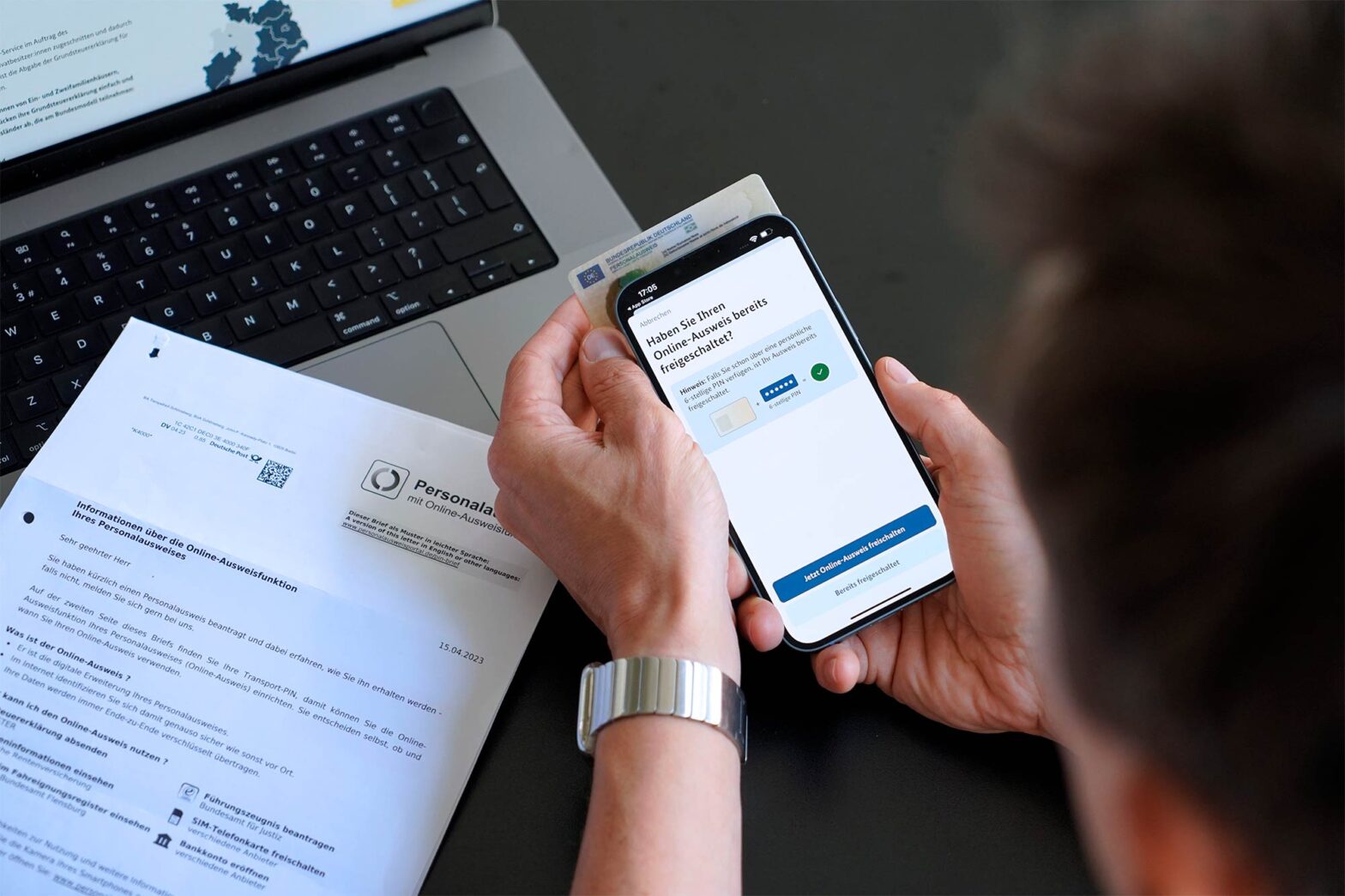Our digital identity service component ‘BundesIdent’ will no longer be available in a few days. As my colleagues Anna and Carolin wrote in a blog post last week, we are completing a pilot and consequently taking the beta version of the native apps out of the stores. We learned plenty, and there is much to share from the work over the past couple of years, including a very thorough discovery.
So the team is preparing rich material documenting the work, insights and recommendations. It includes another blog post, a self-report against the 19 of the Service Standard, and further documents to be published on GitHub.
I examined how the self-assessment against the 19 points is presented for the Service Standard report. For now, it’s simple HTML text pages on our website’s transparency page. I made a sketch that allows more glanceability of how each point is fully met, partially met, not met or not applicable. Inspired by how the Australian colleagues at the DTA present their service assurance reports, my draft shows a simple table with colour-indicated information for each point, which also functions as a link to the related section in the report. Daphne will take a closer look at the visual design draft, and I hope we can implement it in the coming days. This and a few other visual improvements should make our Service Standard reports easier to read and faster to navigate for people interested in our work.
Using the short time window of our ‘BundesIdent’ apps still available and the service component integrated into our property tax declaration service, Sonja recorded a few more users going through the entire flow. We might continue with a few more people next week to capture more material. It’s still not flawless, and more work could happen on the entire service flow to improve usability and accessibility.
Learning by meeting
Summer conference season is still full on. Another 3-day public sector conference this week brought many people to Berlin. I skipped the event but met with Tinka, who works in the state ministry of Baden-Württemberg. She and her team recently published a transformation master plan for her state and its ministries. It’s pretty comprehensive and covers user-centricity, modern leadership, effective collaboration, capability-building, and continuous improvement. I was curious to hear how they might tie it to the Service Standard. It remains a hen-egg problem: People need to see that good services have been following it to follow it.
Together with my engineering colleagues Christian and Niko, we spoke to her digital and IT colleagues in a municipality in the same state. They shared their obstacles and challenges and also expressed their frustrations with other better-funded, higher levels of government. All of that is familiar from my experience in the UK. I would like to know what international collaboration examples could also work in multi-level government space in Germany. The UK’s Department of Transport Blue Badge service, run by the central government on behalf of many local governments, remains a point of reference to me. And I like to see if there are similar setups possible – as part of the ‘one for all’ service approach that’s explored at the moment.
Mid-week, I was on a morning call with accessibility charity Pfennigparade (literally ‘penny parade’). One of our justice service teams is interested in consulting them, so the call turned into a live expert review with many critical questions. I appreciated the directness, and the team could already take some good notes.
Bringing people together
Maria and I announced the kick-off of our cross-public sector user-centred design community of practice as part of the NExT network. The response on social media was very positive, with much interest from people from consultancies, too. Luckily, we already have established the public-facing meetup that we can recommend non-public servants to join.
We have put together an agenda for 2.5 interactive hours. We have multiple short inputs and 2 longer workshop sections. We want to learn from participants what user-centred design means to them and how it’s practised in their organisations. The people joining should define the direction of the community and help us build the agenda for the autumn gatherings.
Maria and I are curious about who will join the first session. We have contacted all designers and researchers we know of, including people from government-owned public sector companies.
Reviewing last week’s meetup, I facilitated a retrospective in which Tori and Nadine from CityLAB and my colleague Christian participated. We have some ideas for improvements and are eager to continue the meetup series in early autumn with some concrete dates already in mind.
As a last action of the week, Tobi from CityLAB and I started thinking about further international activities for autumn. We will refine and pitch them to people around us to see who is interested. It would be great to make some more in-person events happen.
What’s next
After postponing it by a few weeks, we will finally have our June international call on Thursday. Continuing the theme from May, we hear more about digital certificates and wallets. This time, we will have colleagues from Germany and Sweden share their recent work.
Our friends at CityLAB are running their summer festival, where I spoke last year. It will be an excellent opportunity to meet the new Chief Digital Officer of Berlin and other people from the administration. There may be a few more people I can invite to our NExT community call, too.

